Discovering enlightenment and creativity at Dhaka Flow Festival
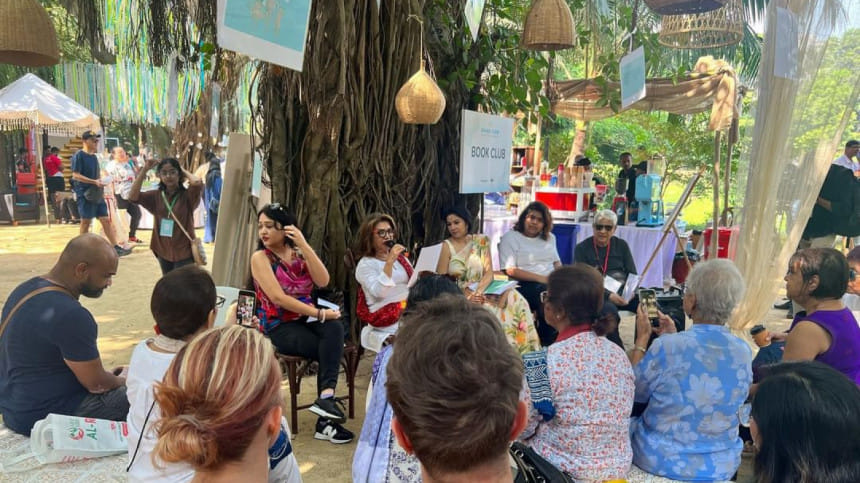
The winter sun, casting its rays over the serene lake at Gulshan Society Lake Park, created the ideal backdrop for a weekend dedicated to promoting health and wellness among Dhaka's residents. Dhaka Flow Festival, termed the festival of yoga and wellness, took place on November 10-11.
This festival was more than just a gathering; it was a celebration of healthy living. Festival goers could immerse themselves in a variety of activities, ranging from creative arts to educative discussion panels and physical activities that championed healing through movement and mindfulness.
On the first day of the event, as I entered the park on a slightly cold November morning, it was a unique site to behold as the young and old alike gathered in their active attire. I felt slightly overdressed. In the background, the yoga instructor was giving out instructions during a yoga session as I walked towards the Gratitude Wall. I wanted to begin the day with art therapy. A table sat beside the wall, stocked with art supplies, free for anyone to draw whatever they wanted and add it to the wall. I watched as the wall gradually filled up in the early morning light, carrying a central message of promoting peace and ending wars. Standing quietly in the middle of this evolving piece was a singular Palestine flag.
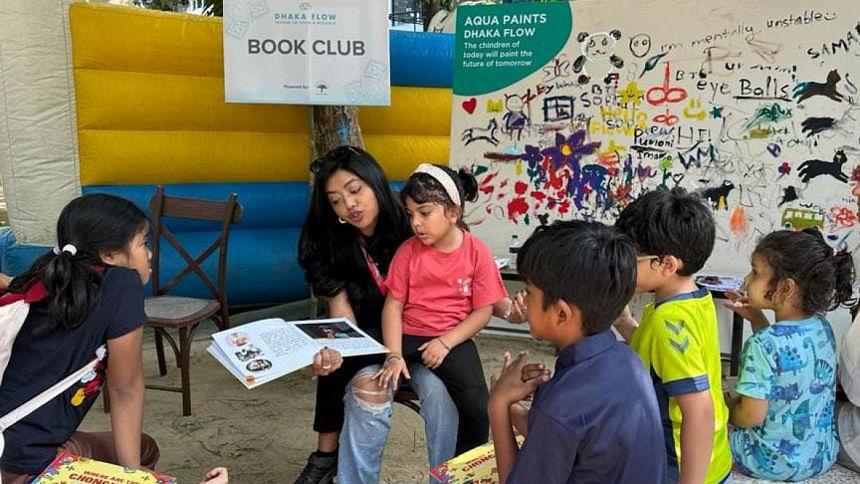
The afternoon unfolded in a quaint amphitheatre, where speakers from diverse backgrounds shared their wisdom on healthy living and eating well. The "Eat Well" discussion delved into the myths and truths of diet culture, posing the fundamental question, "What does it mean to eat healthy?" As the speakers wrapped up, their parting advice was simple: "Listen to scientists, be mindful, and do your own research." They emphasised the importance of a balanced meal and cautioned against falling for restrictive diet plans. The following session expanded to women's reproductive health education, with comedian Raba Khan and other speakers advocating for its inclusion in school curricula, stressing on the need to take these conversations beyond the already educated upper middle class in Dhaka.
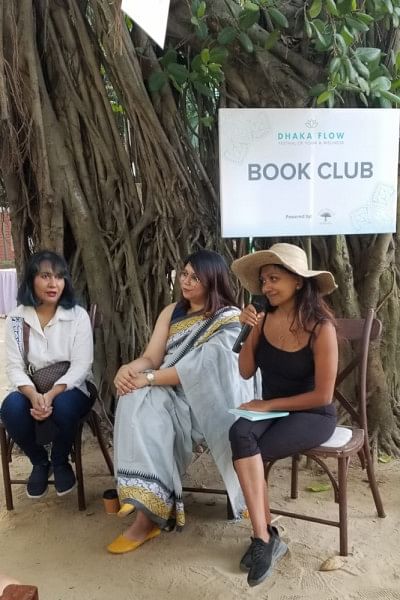
Day two, for me, was a day of indulging in literature. The book club was situated under the comforting shade of a Banyan Tree. It wasn't meant to be a space for a massive gathering; instead, it set the scene for an intimate discussion. In the background, a singing circle and Zumba provided a lively soundtrack, creating the perfect ambience for the upcoming reading sessions. The reading session, Illuminated Fitness, commenced with a poem that beautifully articulated how the "Higher mind is layered with a powerful body, corporal dimension intertwines with the spiritual, enlightenment reigns within stamina" by the Pen Warriors. Prior to this, each speaker had chosen a topic related to a physical activity. They had crafted a story that explored the journey of reaching enlightenment through engaging in this particular physical activity. As the session unfolded, the stories of each speaker were shared, including reflections on lovers and a tale capturing the wonder and innocence of children. A session on mental health and addiction followed and drew particular attention to the importance of addressing the sensitive and important subject of mental health through writing. A select reading from Lamia Islam's My Life is a Mess (2023) and Shazia Omar's Like a Diamond in the Sky (Zubaan, 2009) urged the crowd to reflect on their own understanding of mental health and wellness, especially with regards to teeangers and young adults.
The next session, Writer's Block, featured prominent Bangladeshi writers and poets sharing both their published and unpublished works. Farah Ghuznavi, the author of Fragments of Riversong (The Daily Star, 2013), treated us to a reading of her published flash fiction piece, "To Laika, with love". Following this, Salahdin Imam, shared an excerpt from his yet-to-be-published memoir on the 1971 war of independence. The final reader, poet Saadaf Saaz, graced the session by reading poems from her collection, Sari Reams (The University Press Limited, 2013).
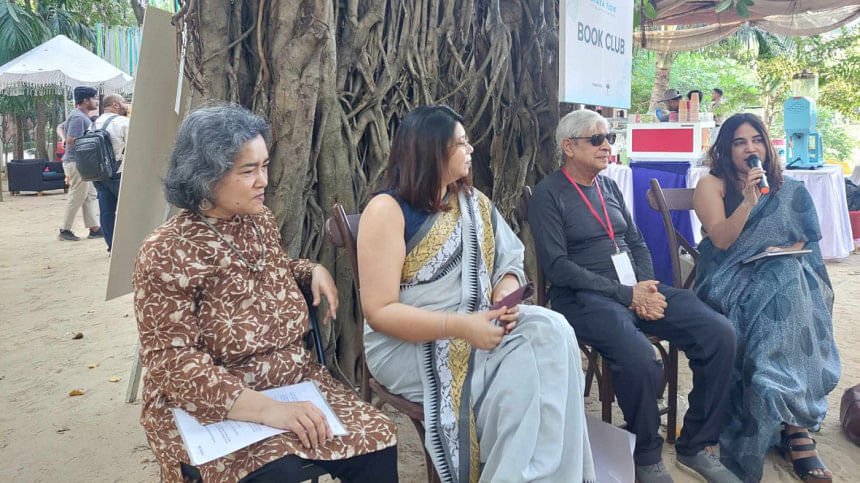
As the readings concluded, the session's moderator and Editor of Daily Star Books and Star Literature, Nazia Manzoor, guided a conversation with the speakers. The dialogue delved into the unique themes explored in the pieces shared during the session.
So, how does one tackle writer's block and discover unique subjects to write about? Farah Ghuznavi sheds light on this by explaining how to leverage the smallest details of one's life to craft distinctive stories. According to her, "Life is literally passing you by, and you're not noticing the millions of stories around you", emphasising the significance of being observant and mindful of the things happening in our surroundings. One can utilise these small details and add a twist to them to create the most unique story.
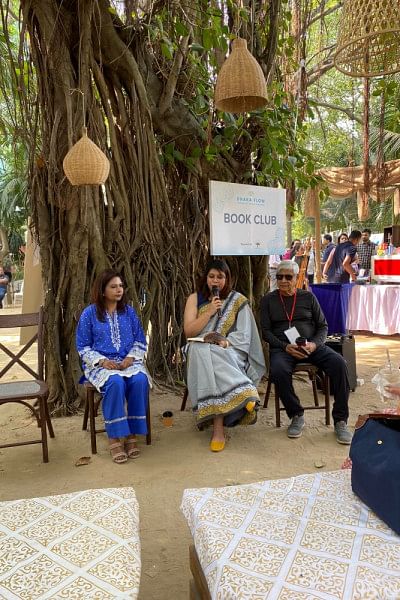
In addition to the activities, the event offered an array of distinctive stalls for festival goers, featuring sustainable and healthy products rooted in Bangladesh. These included nutraceutical products, skincare items, and organic herbs cultivated by our local farmers, with a dedicated focus on highlighting locally grown products that promote health and wellness. It was surprising to discover that farmers were even cultivating cereals like quinoa.
"Art, creativity, movement, yoga, writing, this is all part of the self-healing journey and about getting to know yourself. With Dhaka Flow, the intention is to share that with everybody and get everybody thinking about how we can be better as a community", shared Shazia Omar, author of Flow Within and founder of the event.
Tasnim Odrika is a biochemist and a writer. She can be reached at [email protected].

 For all latest news, follow The Daily Star's Google News channel.
For all latest news, follow The Daily Star's Google News channel. 




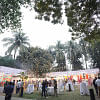
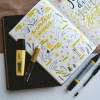

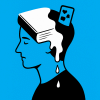



Comments